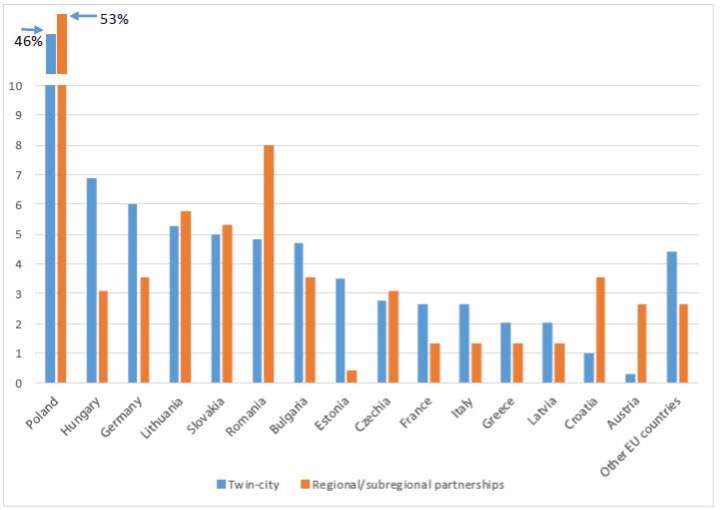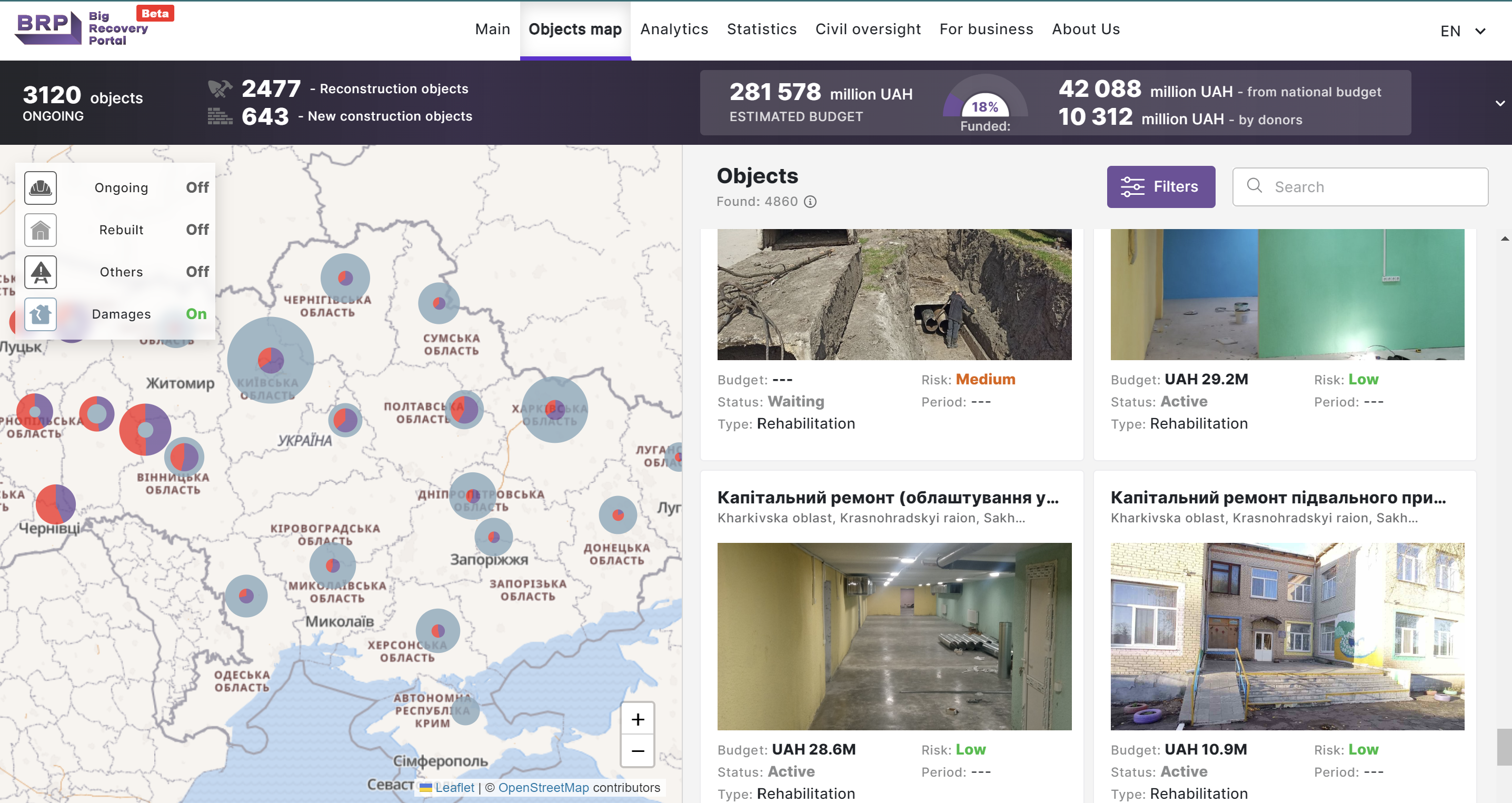Defending Democracy: Ukraine's Resilient Reconstruction
War is a tragedy and a horror, wreaking sacrifices and destruction in its wake. The horrendous costs cannot be denied, but resisting an enemy also creates opportunities for resilience and transformation. Ukraine and its wartime society provide some prime examples of responding with socioeconomic innovation to a relentless and better-resourced foe. The world’s democracies would do well to take note of the importance of Ukrainians’ individual action, in conjunction with national and international support, and transparency of process, for building social resilience in a time of crisis.
Act Locally
History shows that decentralization is a key Ukrainian tradition. As far back as the 15th century, Cossacks elected their leaders and made important decisions at general councils. After regaining independence following decades of Soviet occupation and collectivism, Ukrainians succeeded in restoring the model for decentralized authority. The effort has paid off, having become a critical element of resilience following the full-scale Russian invasion of 2022.
Decentralization is more than local authorities’ capability and legal responsibility. It is also about residents’ actions and duties. Ukraine offers many examples that illustrate this. Elected village representatives and residents have saved their communities by relying largely on themselves since Russia’s invasion. They had to. Russian jammers had cut them off from the central government by blocking mobile signals and the internet. Damaged infrastructure meant local communities took it upon themselves to secure water, electricity, and medicine. They also organized the evacuation of wounded residents and took steps to protect residents’ identities.
On their own initiative, for instance, the people of Novobilouska hromada in the Chernihiv region hid at the beginning of the invasion all local-authority files with the personal information of the Ukrainian soldiers and activists. Without such quick action, Russian occupiers would have likely been able to commit far more atrocities.
Now, after liberation, locals are taking the lead on reconstruction and security, their new priorities. Almost every employee of the Novobilouska village administration is applying for funding from domestic and international donors to address urgent local needs. The administration’s head, Dmytro Fedoriv, acknowledges that progress is primarily up to people's ability to organize themselves. “This is our land, and we want to live on it and develop it—despite the enemy,” he emphasizes.
International Partnerships
As of 2022, local and regional partnerships between Ukraine and EU member states were extensive (see graphic below). The resilience and adaptability that Ukrainian municipalities and regions have since demonstrated has spurred even greater interest in cooperation, according to a European Parliament study. Links between the German state of North Rhine-Westphalia and Ukraine, for example, have expanded from six to 39 regional partnerships. The state premier, Hendrik Wüst, believes that “partnerships such as ours … make a decisive contribution to building and strengthening a united Europe.”

Most European programs are designed to encourage joint project applications, in line with the EU's cohesion policy. In this way, developing international partnerships can attract more investment and international expertise, and help disseminate lessons learned from Ukraine's resilience and crisis management experience.
Exchanging best practices in local and regional development with Ukrainian small- and medium-sized municipalities is, for example, the goal of the Bridges of Trust project implemented by the Council of European Municipalities and Regions. More than 30 Ukrainian municipalities have now cooperated with 30 European partners to submit applications for funding for more than 40 projects of common interest, many of which focus on Ukraine’s reconstruction.
Transparency and Integrity
Ukraine’s development also demands accountability as a moral imperative and a strategic priority. But the country was aware of this even before the war. In 2016, Prozorro, an e-procurement system, replaced procedures that required paperwork, in part to ensure greater openness of the process. For this, Prozorro has repeatedly received international recognition, including being named the world's most transparent public procurement system by the Institute for Development of Freedom of Information. Even in the chaos of war, Prozorro demonstrated endurance and resilience.
However, new demands arose after the Russian invasion. The number of buildings destroyed is greater than four times the number of structures in Manhattan. Ukraine, therefore, needed an expanded system to oversee the reconstruction purposes. The Digital Restoration Ecosystem for Accountable Management (DREAM) was consequently launched in 2023, based on the same principle of transparency that Prozorro used.
DREAM enables tracking at every stage of restoration projects, from planning to implementation, and collects much local information including socioeconomic data for smart planning. Knowing the number of children in a region and projecting how many there will be in five years, for instance, helps planning for kindergartens. The use of data as a foundation for decisions prevents the channeling of funds based on politics or emotion.
DREAM also allows funders to sort projects by sector (e.g., health care) or geographical location and communicate directly with local authorities. Taxpayers in other countries can even see which projects their country has financed and each project’s implementation stage. International funders are strongly encouraged to make their projects available on the system.
Civil Society Partnerships
Many reconstruction projects are implemented at the local level and require community engagement. Ukraine’s Big Recovery Portal enables civic monitoring of reconstruction funds and flags high-risk projects. For each object in need of restoration, a risk score based on complexity, transparency of contractor work, and of allegations of noncompliance with requirements is calculated (see figure below). This allows the team overseeing the portal to identify challenges to reconstruction and share them with the government and anti-corruption organizations.

The system also benefits local civil society representatives, who can view all nearby restoration projects, their technical specifications, funders, and contractors, and even compare before-and-after photos. Those who discover inconsistencies between the platform’s information and the actual state of affairs can leave a comment or file a complaint.
The transparency of Prozorro, DREAM, and the Big Recovery Portal allows for more than public identification of inefficiencies and corruption. They contribute to the development of national institutions, accelerate reforms, and facilitate EU accession. In short, they anchor long-term good governance.
The Stakes for Other Democracies
Tragically, Ukraine’s fight for freedom, security, and prosperity continues, exacting the ultimate sacrifice. Ukrainian state, local and regional authorities, and civil society, however, are demonstrating leadership and accountability as a cornerstone to national resilience. This has unveiled the country’s vast potential, which is attracting international interest in reconstruction projects and other investments.
The Ukrainian government and other domestic stakeholders from a wide range of social sectors have joined forces to continue the reform process, which will advance the country’s Euro-Atlantic integration. Essential work still lies ahead, but the outlines of history have come into focus. Ukraine is defending democracy, and like-minded countries will benefit from continuing to support that defense and the subsequent recovery. They can even take a page out of Ukraine’s book.
Innovative digital solution tools reinforce the legitimacy of recovery efforts, facilitate funding and increase efficiency. Prozorro, DREAM, and the Big Recovery Portal can serve as examples for other countries to follow when navigating exceptionally difficult circumstances due to violent conflict, natural disaster, or even a blackout.